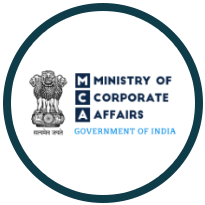Transitioning from One Person Company to Private Limited Company: Process and Benefits

Starting a business as a One Person Company (OPC) has become a popular choice among entrepreneurs in India. It provides the advantages of limited liability while allowing a single individual to operate the company. However, as the business grows, there might be a need to convert the OPC into a Private Limited Company. This article explores the process and benefits of transitioning from an OPC to a Private Limited Company in India.
Transitioning from OPC to a Private Limited Company
As an OPC expands and experiences growth, there are several reasons why the conversion to a Private Limited Company might be considered:
- Fundraising and Investor Attraction: Private Limited Companies have better access to funding options and can attract external investors.
- Limited Liability Protection: Private Limited Companies offer enhanced limited liability protection to their shareholders.
- Scaling and Expansion: Converting to a Private Limited Company allows operations to expand and attract skilled professionals.
- Increased Credibility: Private Limited Companies have a higher credibility quotient among clients, suppliers, and business partners.
Legal Process and Requirements
The process of transitioning from an OPC to a Private Limited Company involves the following steps:
- Board Meeting and Passing Resolutions: The member must convene a board meeting to obtain approval for the conversion. Resolutions regarding the conversion must be passed during the meeting.
- Obtaining Director Identification Number (DIN): If the member doesn’t have a DIN, they must apply from the Ministry of Corporate Affairs (MCA).
- Altering Memorandum and Articles of Association: The Memorandum and Articles of Association of the OPC need to be altered to reflect the new structure and provisions of a Private Limited Company.
- Filing Application with the Registrar of Companies (RoC): The member must prepare and file the necessary forms and documents with the RoC to initiate the conversion process. The RoC will review the Application and issue a Certificate of Incorporation upon approval.
Benefits of Converting to a Private Limited Company
1. Enhanced Credibility and Access to Funding:
Converting to a Private Limited Company increases the company’s credibility in the eyes of investors, lenders, and business partners. It also opens up opportunities to raise funds through various methods, such as equity funding, venture capital, or loans from financial institutions.
2. Limited Liability and Separate Legal Entity:
A private limited company’s limited liability protection to its shareholders is one of its key benefits. Shareholders are not personally liable for the company’s debts or liabilities beyond their invested capital. A Private Limited Company is also given additional legal protection because it is viewed as a distinct legal entity from its shareholders.
3. Attracting Investors and Expanding Operations:
Private Limited Companies have a broader scope for attracting domestic and foreign investors. The presence of multiple shareholders and a well-defined corporate structure increases the company’s potential for growth and expansion. It also enables the company to hire talented professionals and retain them through employee stock options.
Procedure for Conversion
1. Board Meeting and Passing Resolutions:
The members of the OPC must call for a board meeting and pass resolutions regarding the conversion. The approval for the modification of the memorandum and articles of association and the start of the conversion process should both be included in the resolutions.
2. Obtaining Director Identification Number (DIN):
If the member doesn’t have a DIN, they must apply for it from the Ministry of Corporate Affairs (MCA). The DIN is a unique identification number allotted to individuals who wish to become company directors.
3. Altering Memorandum and Articles of Association:
The Memorandum and Articles of Association of the OPC need to be altered to reflect the provisions and structure of a Private Limited Company. This includes changing the name, object clauses, capital structure, and other relevant details.
4. Filing Application with the Registrar of Companies (RoC):
Once the necessary alterations have been made, the member must prepare the required forms and documents and file them with the RoC. The Application should include the altered Memorandum and Articles of Association, board resolutions, and other supporting documents. The RoC will review the Application and issue a Certificate of Incorporation upon approval.
Frequently Asked Questions
Q1. Can any OPC be converted to a private limited company?
A: Yes, any OPC can be converted to a private limited company by following the legal process and fulfilling the requirements set forth by the Ministry of Corporate Affairs.
Q2. Is it mandatory to convert an OPC to a private limited company?
A: No, converting an OPC to a private limited company is not mandatory. The decision to convert depends on the growth and expansion goals of the business and the advantages it seeks to gain.
Q3. What is the time frame for the conversion process?
A: The time frame for the conversion process may vary depending on the efficiency of document preparation, filing, and the approval process by the Registrar of Companies. It typically takes a few weeks to complete the conversion.
Q4. Are there any tax implications for converting to a private limited company?
A: There might be tax implications when converting to a private limited company. It is advisable to consult with a tax professional or chartered accountant to understand the specific tax implications and plan accordingly.
Q5. Can the conversion process be done online?
A: Certain parts of the conversion process can be done online, such as filing the Application with the Registrar of Companies (RoC). However, some steps, such as obtaining the Director Identification Number (DIN), may require physical documentation and processing.



